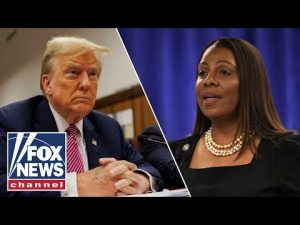In a political arena where everyone seems to have an opinion but no one quite hits the nail on the head, there emerges an intriguing question about our nation’s finances and how tariffs could once again be the shining knights of fiscal responsibility. It is proposed that the hefty money bags from tariffs might just be sufficient to put Uncle Sam’s income tax worries to bed. Picture 1870 to 1913, a time when tariffs were the bedrock of public revenue, and America swam in riches like Scrooge McDuck. Back then, a very serious committee was created just to figure out how to spend the overflowing gold. Only after this era of gleaming prosperity did someone have the bright idea to implement the income tax system in 1913.
Now, history gets a bit muddled in the recounting, with many pointing fingers at tariffs as the villain behind the Great Depression. But, in this narrative, it’s almost charmingly mistaken. Tariffs were introduced in 1931 or so, after the financial chaos had already hit the fan in 1929. By the time tariffs entered stage left, the show was pretty much over. In essence, they played the role of the scapegoat while the real drama had already unfolded.
Fast forward to modern times, the tune changes a bit as they revisit the potential of channeling funds from tariffs. The numbers being thrown around are enough to make anyone’s head spin—billions upon billions, sums so large that they beg the question of whether this could indeed replace the income tax altogether. Let’s just say, there’s a lot of cash in the coffers, and it’s being put to good use… well, sort of. The optimism is almost contagious when speculating about a world with no tax on overtime or tips and no tax on Social Security for seniors. It sounds like a world where dreams come true, doesn’t it?
The conversation takes a detour to explore intriguing ideas involving tax deductions for American-made cars. Interest deductions on these automobile investments seem like a nod to the nation’s industrial heart, fostering a sense of pride and perhaps persuading factories to come home again. It’s argued that more and more car factories are reportedly sprouting like mushrooms after a rainstorm, as if drawn by some mysterious, magnetic charm of U.S. soil. Even the tech industry isn’t left behind, with computer chips and electronic components sticking their flags into the ground, promising to bolster America’s prowess in technology.
Lastly, in a nostalgic twist, the Panama Canal makes a cameo with its historic price tag and its regretful handover to Panama for a dollar by a past administration. The narrative rues this move, implying lessons learned, and paints a picture of a potential challenge to this controversial decision. Spoiler alert: China seemingly looms large over this strategic route, a point of contention reminiscent of an international chess game. With so many promising moves on the table, the hope is high, albeit slightly muddled. But, as they say, politics is always good for a plot twist or two.







